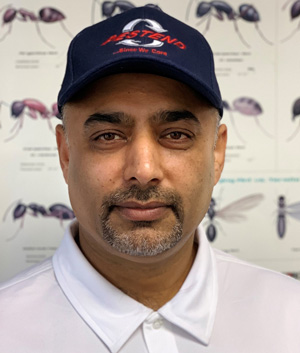
PHOTO: JENS DOMSCHKY/ISTOCK / GETTY IMAGES PLUS/GETTY IMAGES
Working as a pest management professional (PMP) comes with a fair number of challenges, not only for the person, but also for the manager/executive overseeing him or her. As their supervisor, you are the one that must train your team so that they can become better at their jobs and ensure mistakes are minimized. If you have someone under your wing or are planning to hire and train new employees, here are some expert tips that can take your team to the next level.
1. Provide regular training.
You might want to just “go with the flow” and train your team on the go to save some time. However, if you want to bring matters to the next level, you need to dedicate some time to their training. Organizing weekly, one-on-one training for up to two hours can be very beneficial for their development. The meetings should be informative and engaging so that they can learn as much as possible. You should also create training materials that can be referenced in the future and help develop their skills.
2. Ensure communication.
If you want your teamwork to be exquisite, then you need to learn how to communicate with your team. Regardless of whether it is a family business or you hired them somewhere else, you need to know as much as possible about them, their habits, or anything else that might affect their work.
3. Teach how to keep a pest sighting log.
We know, it might not be the first thing you probably thought about when training, but one of the most important tasks of a supervisor/trainer is to teach technicians how to keep a pest sighting log. There, they should add where, when, by whom, and what kind of pests were seen. This is important, as treatment might not always deal with one kind of pest.
4. Teach how to tackle various pests.
When training new hires, you need to teach them that different kinds of pests require different approaches. Teaching them what makes each pest tick will allow them to choose a proper treatment method in the future.
5. Teach infestation signs.
They may know what to do when they are already aware of an infestation – but before coming up with a battle plan, techs need to understand the signs of an infestation. Depending on the points of the building, they may see various signs that will indicate what kind of pests they are dealing with.
6. Bring out the latest technologies.
For your team to go one step up, you will have to make sure they keep up with the latest technologies — heat treatment, trap sensors, etc. This involves you just as much as it involves them. The better the equipment and technologies, the easier it should be for them to get rid of pests without creating any further damage.
7. Insist on getting familiar with safety equipment.
Safety always comes first. During training, make sure that every safety step is followed thoroughly. This will protect your team from injury, and protect you from any liabilities. Make sure that before everything starts, you teach them all the basics of wearing their personal protection equipment (PPE) correctly.
8. Teach task management.
Some tasks might take more time than others to perform. For example, a bed bug removal might take more than one treatment session to finish. They need to know some basic time management skills, as pests don’t wait for you until you get free time.
9. Address seasonal concerns.
For work to run smoothly, you also need to address seasonal concerns. Summer will need different kinds of equipment as compared to winter. If your techs are not feeling comfortable in their work environment, then they won’t be able to give their best.
10. Emphasize the rewards of the job.
The job of a PMP might have a number of challenges, but those who recognize the rewards will also be more motivated to work and do a good job. With pest control, you can always expect there to be demand, and you are actually helping people that are desperate with a problem. For the client, a PMP is nothing less than a savior, and your team needs to understand that.
The bottom line
In the end, to bring your team to the next level, you need to be there for them. Teach them what you know, and strive to create a better environment for them. This way, they will also give their best and become pros.

Luqman Butter
BUTTER has been a pest control technician for more than 20 years. He is passionate about solving people’s pest and wildlife control problems through innovative, eco-friendly and humane methods. Butter currently works for Pestend Pest Control. He says he believes that pest control is a science, and feels that his function in his community is very important, since he helps people live in peace without causing unnecessary harm to animals.
Leave A Comment